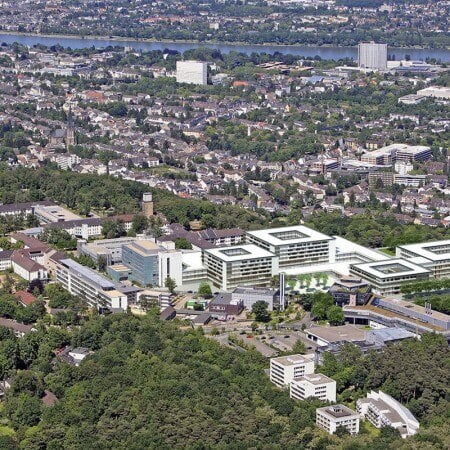About the disease
Urethral polyp is benign growth in urethra. Practically, urethra is responsible for passing urine. Urethra also serves as an ejaculating channel for men. Men usually have prostatic urethral polyp, while in women this disease usually develops in the area of external opening of urethra. Urethral polyps are quite uncommon, but people who have it can experience pain and discomfort if disease is not treated on time. This illness is more common in young people and it usually develops as a result of infection. In most cases lesions which appear as a manifestation of urethral polyps are not dangerous and can be treated.
In most cases urethra is caused by chronic inflammatory diseases. The most common one is HPV infection, which can lead to formation of genital warts and papillomas. Chlamydial infection, which is sexually transmitted, can also cause inflammatory diseases of genitals. Trichomoniasis is also sexually transmitted and it can contribute to development of urethral polyps. Genital herpes, which is a virus spread through sexual contact, leads to emergence of vesicle rash on the genitals. Anaplasmosis is another sexually transmitted disease that causes urethral polyps. Urethral polyps can also appear due to mechanical trauma of urethra, which could have appeared after surgery or accident. Certain hormonal disorders can contribute to urethral polyps in females.
Symptoms
At its beginning stages urethral polyps rarely cause any great discomfort, apart from mild stinging during urination. In more severe cases its symptoms are:
- Difficulty urinating
- Presence of soft formation in urethra, which patient may feel
- Burning in urethra, arising both during urination and after it
- Change of urine color
- Blood discharges
- Nausea
- Dizziness
- Difficulties with bowel movement
Urination can be not only painful, but also frequent and it can be sprayed out abnormally. Polyps usually do not cause considerable problems with urination, only if it is very large. In medical practice there were cases when polyp was so big, that it blocked urethra. Among other complaints are bleeding and discomfort during intimacy.
Diagnosis
First of all, a doctor will analyze complaints concerning urinary difficulties to see if a patient experiences burning in urethra or whether there were any unusual blood discharges. After that he will ask patient a number of questions about his medical history to understand if there were any illnesses of urogenital system in the past of patient. The most important question, however, will be an inquiry about sexual history of a patient, because almost 90% of this disease are due to sexually transmitted infection. If urethral polyps were indeed caused by such infection, a doctor may recommend a sexual partner of the patient to also undergo a number of tests to see which infection was an exact cause of polyps.
- A doctor will also examine a sample of patient`s urine to analyze its nutrient and microbial medium. This test can reveal if there were any germs, which could act as specific causative agents of inflammatory process in urethra, bladder and kidneys.
- Taking an urethral smear (microscopic examination of material obtained from the surface of urethral mucosa) can help in detection of bacteria and determining the presence of inflammation.
- PCR method (polymerase chain reaction) is a highly accurate diagnostic method that allows identifying the pathogen of urinary tract and determining its species.
- Cystourethroscopy (introduction of optical device into bladder for examination of mucous membranes of the urethra and bladder) can also diagnose urethral polyps.
Very rarely polyp can be detected in its early stages, when it does not cause any symptoms. Most often it is diagnosed when it has already reached a substantial size to violate function of urethra. Modern diagnostic methods for detecting polyps also include ureteroscopy. These ureteroscopes are equipped with optics, that allows a doctor to detect even smallest tumors without causing any pain to patient. In addition a person can be required to undergo a test which would show if he has any other sexually transmitted diseases apart from infection that caused polyps.
Treatment
In order to convene urethral polyps treatment, doctors usually resolve to surgery. It is the only way to remove polyps. In most cases surgery is not painful and it does not present any complication. Drugs can only eliminate the pain and make urination easier. There are several types of surgeries:
- Cryodestruction of urethral polyps: destruction of polyps tissue with low temperature.
- Electrocoagulation of urethral polyps is destruction of polyps by electric current and heat.
- Wedge excision of a polyp from urethra is used only if a polyp has very large in size.
In most cases doctors just remove the polyp itself, so that it will not continue to grow. Surgery is usually performed under local anesthesia. If polyp is located deep in urethra, surgery is performed using ureteroscopy. If polyp can be reached from outside it can be removed with a simple scalpel. In some cases doctors can even use radiosurgical knife, but this is a completely new treatment method which has not been applied widely yet. This method cut out soft polyp tissue by radio waves. Cut is absolutely atraumatic and there is almost no bleeding. Recovery period also takes less time than traditional surgery and on a second day a person can return to his normal lifestyle. There is also no scar left, which could be left after surgery with scalpel.
Authors: Dr. Vadim Zhiliuk, Dr. Sergey Pashchenko

















